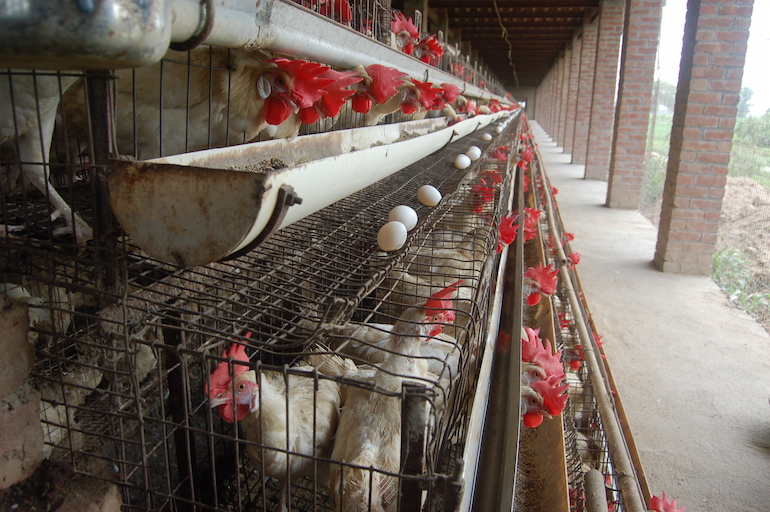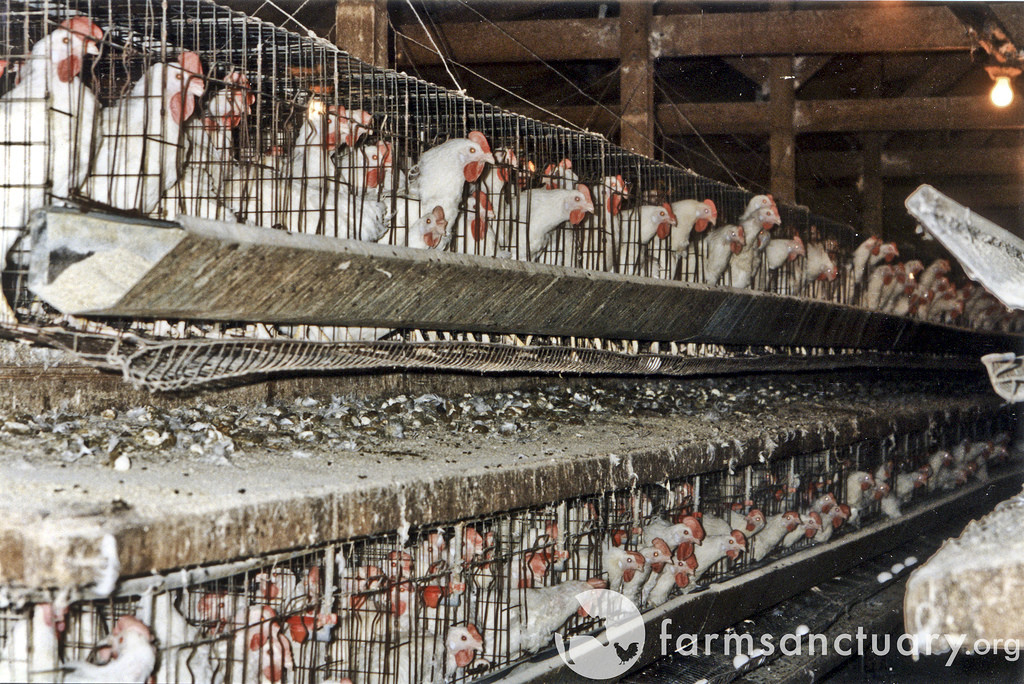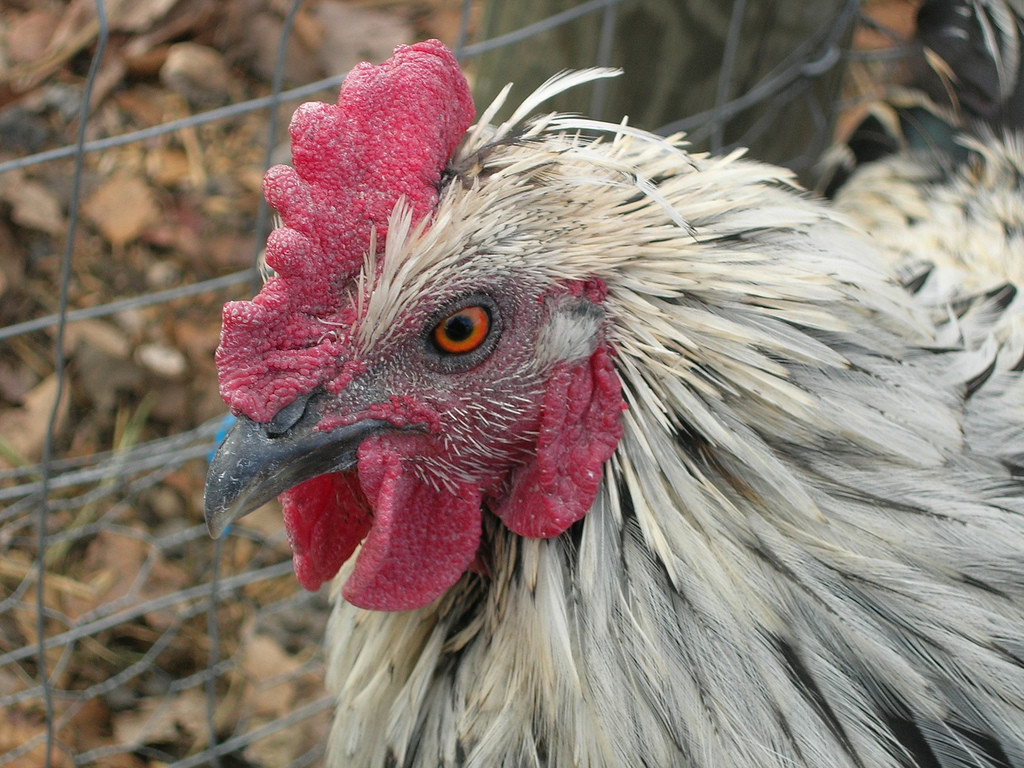On massive battery cage egg farms, hens are confined to small, filthy wire cages where they are unable to spread their wings, barely able to turn around, and live amongst the excrement of other birds.
The situation is so bad that battery cages have been banned as criminal animal cruelty in Michigan and California and throughout the entire European Union.
In addition to the cruelty, battery cage facilities are also incredibly destructive to the environment. National environmental protection groups encourage a switch to cage-free due to the terrible impact that these farms have on air and water quality.
If that weren’t bad enough, battery cage eggs also threaten student health: battery cages eggs are at least 2.5 times more likely to cause salmonella according to one study.

Photo courtesy of Sangamithra Iyer and Wan Park
If battery cage confinement is so bad, why is UGA still buying eggs from farms that employ this barbaric confinement practice? Why not buy eggs from farms where the birds can, at the very least, engage in their most basic natural behaviors: stretching their wings, walking around, perching, and dust-bathing?
Massive companies like McDonalds, Dunkin Donuts, and even Nestlé have all joined the battery cage boycott, so why hasn’t UGA?
When it comes to sustainability, UGA often seeks to position itself at the forefront of the movement to “go green,” but on the issue of battery cage eggs, one that affects not just sustainability but animal welfare and student health as well, UGA now lags dangerously behind its peers.
Most of the nation’s largest food service providers like Compass Group, Aramark, Sodexo, Centerplate, Delaware North, and Trusthouse have already committed to going 100 percent cage-free. These commitments will mean that hundreds and hundreds of universities around the country will now be cage-free, including neighboring schools like Emory and Georgia State.

Photo courtesy of farmsanctuary.org
Last September, my classmates and I decided to ask UGA to stop purchasing eggs from cruel battery cage farms. We made numerous attempts to meet with Jeanne Fry, UGA’s former Director of Food Services, to tell her about this issue and to let her know what exactly we wanted from the university.
We were never granted a meeting. Refusing to be ignored by Food Services, we spent weeks gathering petition signatures in Tate Plaza. 1,500 signatures have since been delivered to Food Services, and I finally met with Interim Director of Food Services, Bryan Varin. After two meetings, we were told the same thing repeatedly: a commitment wasn’t possible.
However, we know that with just a little bit of research into purchasing options, this change is in fact possible. We brought in our own outside help who can work with Food Services to find the solutions they need. From Harvard University to Georgia Tech, The Humane League has helped hundreds of universities, as well as large companies like Starbucks, The Cheesecake Factory, and Ikea, to phase out the use of cages in egg supply chains.
“The estimated cost increase as provided by UGA’s Auxiliary Services department is astoundingly high comparative to anything else I’ve seen from other universities,” said Chris Guinn, The Humane League‘s Atlanta Office Director. “I’m certain that with our assistance we could cut that projected increase substantially.”

Photo courtesy of Dan McKay
I strongly urge UGA to listen to its students, learn from other colleges and universities, and make the ethical, sustainable, and necessary decision to go cage-free. We’ve raised our voices.
We’ve found the outside help to work with Food Services to make this happen. After a full year of petitioning for cage-free, the time is now for UGA to act and join the battery cage boycott.

